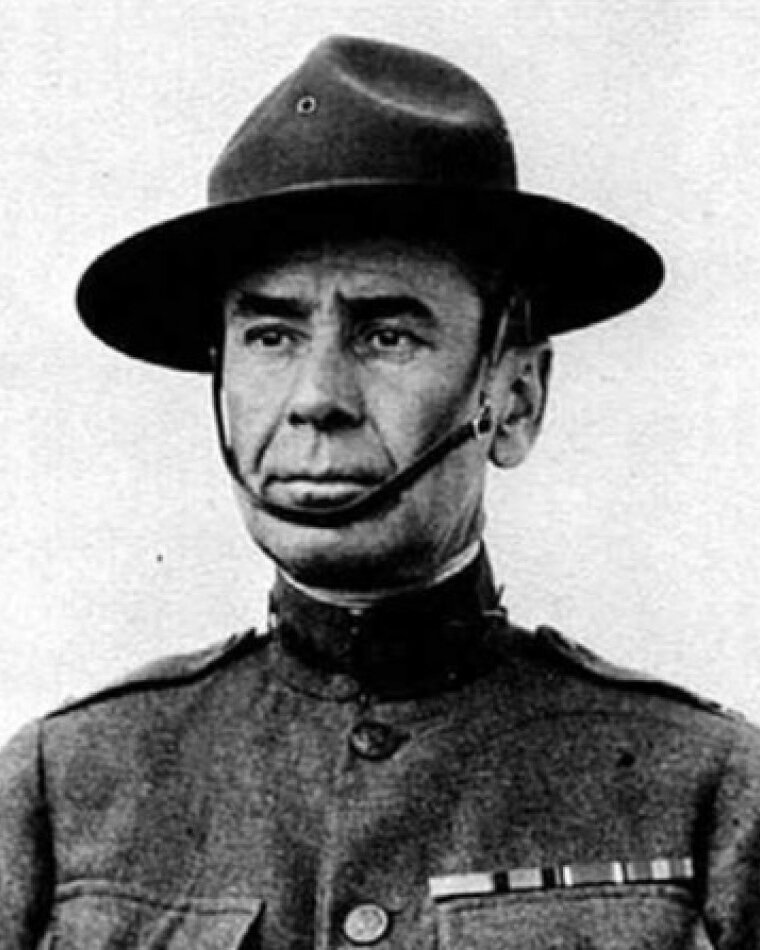Julien E Gaujot
Julien was born on the 22nd of October, 1874 in Eagle Harbor, Michigan, where, of his five siblings, his youngest brother and sister, Antoine and Marguerite, were also born. His father was a mining engineer that moved from France to Tamaqua, Pennsylvania, where he met Julien’s mother. The family moved from Pennsylvania, to Michigan, Canada, Virginia, and West Virginia. West Virginia is where Julien would join the 2nd West Virginia Volunteers in May of 1898 as a Second Lieutenant, receiving a commission to First Lieutenant in the 10th Cavalry Regiment almost three years later. Julien had participated in the Spanish-American War and the Philippine-American War, where he would be charged and convicted of using a torture method called the Water Cure on a Filipino insurgent. This is when you force someone to drink a large amount of water in a very short amount of time and for this he was suspended for three months and docked $50 for each of those months. During this same time, his brother Antoine, who had enlisted in the US Army, received the Medal of Honor for his actions in the Battle of Paye and reportedly, Julien had become obsessed with his brother’s new accolade and one time said, “He wears it for a watch fob, the damn civilian, I got to get me one of them things for myself if I bust.” Well, Julien got his wish when he was deployed to serve in the Mexican Campaign because his actions would earn him the Medal of Honor. The citation reads:
For extraordinary heroism in action on 13 April 1911, while serving with Troop K, 1st U.S. Cavalry, in action at Aqua Prieta, Mexico. Captain Gaujot crossed the field of fire to obtain the permission of the rebel commander to receive the surrender of the surrounded forces of Mexican Federals and escort such forces, together with five Americans held as prisoners, to the American line.
What this citation doesn’t mention is that Julien rode his horse back and forth between government troops and Mexican rebels for an hour in heavy fire and was able to eventually ensure safe passage of five American prisoners, twenty-five Mexican government soldiers, and some Mexican rebels which prevented any further danger to the personnel on the US side of the border. General Leonard Wood, who would override the requirement of the cited act being performed in action, said that Julien’s actions deserved “either a court martial or a Medal of Honor”. Well, we know which he received from President Taft in December of 1912, making him the only recipient to be awarded it for peacekeeping actions.
Julien went on to serve in World War 1 and retired from the Army as a Colonel in 1934 after thirty-six years of service. He was married to Mildred, who was 23 years younger than him, in 1910 and she died about a month after the birth of their only child, James. Now, I will state that based on what I have found, Mildred was twelve years old when they were married and twenty-one when she gave birth to their son, IF the years I found are correct. I say this because in this search, I found one year incorrect when referring to Julien.
Julien Edmund Victor Gaujot died on the 7th of April, 1938 at the age of 63 and he is one of five sets of brothers to have both receive the Medal of Honor and the only set to receive them for different conflicts. He is buried in Arlington National Cemetery: Section 6, Grave 8423-NH. His oldest brother Claude and his wife Eula are also buried in Arlington; section 41.




